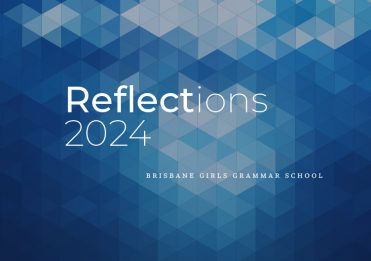Self-Directed Learning: Learn—Assess—Remember!
As we approach the end of Semester 1, it is timely to reflect on our 2019 teaching and learning space. This year is unique for Queensland secondary school education. The OP system, a system that was introduced in 1992, is being phased out. Every effort is being made to ensure that we finish this system exceptionally well. Also in 2019, the QCE/ATAR system is being introduced. As Dean of Studies, Mr James Keogh, often says, it is not a new system for our Year 11 students, it is their system! This mindset is very important for both staff and students.
One major difference of the QCE/ATAR system, when compared to the OP system, is that students must remember work for longer. This is the case for both school-based assessment and for the first round of external examinations that will occur at the end of 2020. This is the first time Queensland has had external secondary school examinations since 1972. Syllabus content has been increased under the majority of the new syllabi written specifically for the QCE/ATAR system. In addition to this, students of maths and science will be required to complete a 50 per cent external examination paper based on a year’s work. Students enrolled in other subjects will be required to complete a 25 per cent external examination based on a unit of work. This is quite different from the OP system where learning and assessment was mostly confined to discreet units of work. Under such a system the mantra must now move from Learn—Assess—Forget to Learn—Assess—Remember!
Such a pivot will require a disciplined focus. At Girls Grammar all students entering the QCE/ATAR system will have completed our Year 7 Philosophy of Learning course. In this course a number of helpful strategies are unpacked with students. One such strategy is represented by the acronym OWL: Organisation—Wise Use of Technology— Listening. It is worthwhile unpacking this briefly now. Learning to remember content for longer will require disciplined organisation, both at home and in the classroom. Thorough organisation requires students to discover when they learn best, either at night time or the early morning and to plan their study routine accordingly. Disciplined adherence to a planned routine study will bear results. Similarly, setting aside a chunk of time on the weekend for systematic study will also bear results. Such disciplined pragmatism is essential for longer term retention of information—it will help move content knowledge from short-term memory to longer term memory.
Technology is both a blessing and a curse—perhaps one of the most acute paradoxes of the 21st century. Technology must be used wisely. As a rule, mobile phones should not be used as alarm clocks, charged in bedrooms overnight and should definitely not be anywhere near students during designated study time. Mobile phones are a productivity sapping distraction where so often the banal is foregrounded over disciplined thinking. Similarly, Wi-Fi should be turned off if digital technology is not required for planned and routine study. Technology is not needed all of the time. If these habits are cultivated successfully then productivity during study times should increase and will assist the goal of learning content for longer.
Listening is the last part of the OWL acronym. Listening to content and classroom-based advice is essential. The classroom is where the syllabus content will be unpacked in context. Classroom discussions will lead students to the gateway of effective self-directed study. If advice is remembered and enacted then the Learn—Assess—Remember mantra will be easier.
All of this requires disciplined practice. The Year 7 Philosophy of Learning course also introduced students to the concept of Kaizen—little by little. Enacting productive study habits must have Kaizen at its basic core. Little by little students will reap the rewards from deep and disciplined self-directed learning. Learning for longer term memory requires focus and self-awareness, as well as disciplined maturity. At the end of a very busy first semester, all students are encouraged to reflect on their approach to their home-based study routines as they prepare for the second semester and beyond.
Dr Bruce Addison
Deputy Principal (Academic)




